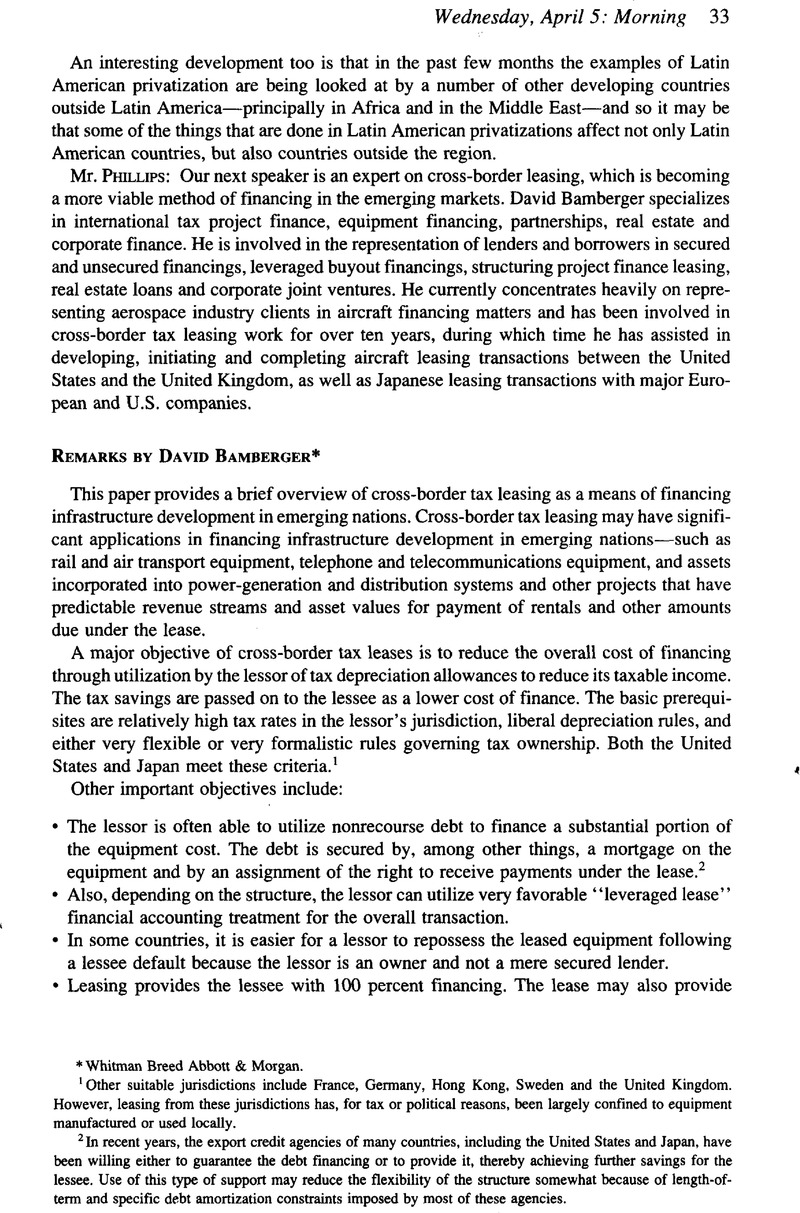No CrossRef data available.
Published online by Cambridge University Press: 28 February 2017

1 Other suitable jurisdictions include France, Germany, Hong Kong, Sweden and the United Kingdom. However, leasing from these jurisdictions has, for tax or political reasons, been largely confined to equipment manufactured or used locally.
2 In recent years, the export credit agencies of many countries, including the United States and Japan, have been willing either to guarantee the debt financing or to provide it, thereby achieving further savings for the lessee. Use of this type of support may reduce the flexibility of the structure somewhat because of length-ofterm and specific debt amortization constraints imposed by most of these agencies.
3 In the United States, so-called “grantor trusts” (common law trusts that are treated for tax purposes as flow-through entities) are used. In Japan, special purpose companies are used pursuant to special contractual arrangements under which the owners are allowed to claim the tax benefits. Another structure, which has been used in recent aircraft lease securitizations, is to place ownership in a special-purpose corporation, the stock of which is owned by a charitable trust, with the “equity” taking the form of deeply subordinated debt issued to the “real” investors.
4 It is believed by some that the Japanese Government tolerates cross-border leasing structures–albeit under strict rules as to available tax allowances–because the acquisition by Japanese lessors of foreign-manufactured equipment for this purpose helps to reduce Japan’s trade surpluses.
5 For example, a number of tax treaties to which the United States is a party (e.g., the treaty with Australia) treat ownership of leased assets located in the jurisdiction of one of the signatories as giving rise to a “permanent establishment,” the profits from which may be taxed in that jurisdiction.
6 A number of tax treaties between developed countries (such as Japan) and emerging nations (such as Brazil) contain “tax sparing” provisions under which a lessor in the developed country is allowed to claim a tax credit in its jurisdiction for withholding taxes imposed on lease payments from the other (less developed) jurisdiction, even though the other jurisdiction grants an exemption from or a special concession reducing such withholding taxes. The expectation is that the parties will negotiate an equitable sharing of the tax sparing benefit, thereby reducing the lease cost to the lessee.